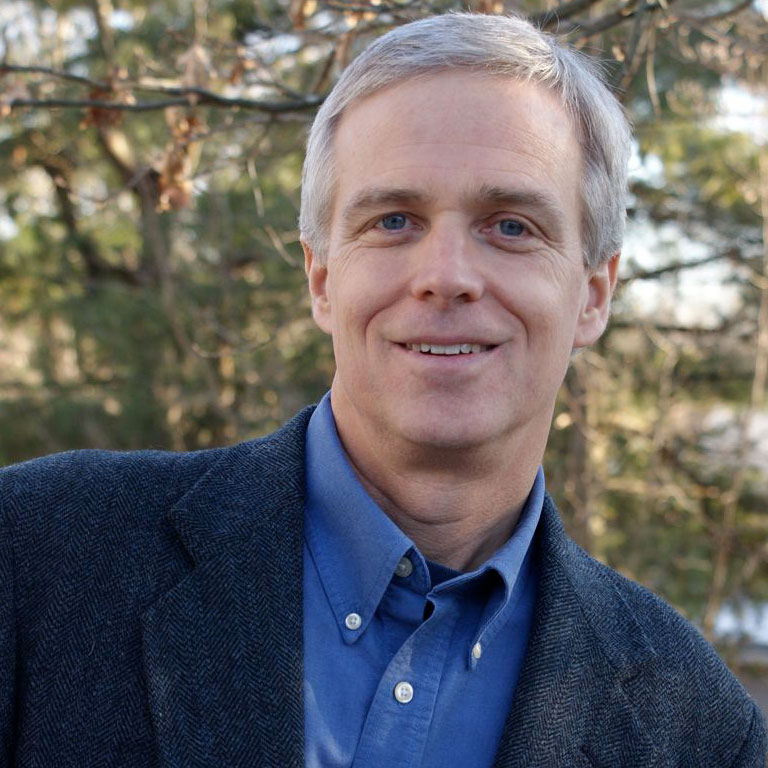Many scholars consider free speech to be essential for a democracy to thrive. Dr. Robert Terrill's fall 2020 course Freedom of Speech dives deeply into the U.S. Constitution's First Amendment, exploring its history and contemporary application with court cases and examples testing and exemplifying one of the rights it grants, freedom of speech.
An interview with Dr. Terrill, a professor in the Department of English, is below.
How will you engage students in a discussion of freedom of speech that lasts an entire semester?
Terrill: We’ll mostly be working through case studies — instances in U.S. history when the freedom of speech has been defined, limited, asserted, and utilized. We’ll start with a careful reading of the First Amendment, of course, including some context, theory, and background. We’ll also read some key Supreme Court decisions, thinking about them not merely as points of law but also as rhetorical documents, directed to an audience of U.S. citizens, and crafted to achieve particular purposes.
We’ll look carefully at examples of U.S. citizens who have exercised their right to free speech in the past — historical figures engaged in addressing a public audience on controversial issues. We’ll think about who they were, who they were speaking to, what they were attempting to accomplish, and how their legacies continue to inform our understanding of free speech.
The course syllabus says you will explore the connections between democracy and free speech. How would you explain these connections to an interested student?
Terrill: An early experiment in democracy for which we have fairly extensive documentation occurred in ancient Athens. They recognized that a democratic culture depends upon the exercise of free speech. The individuals who wrote the U.S. Constitution and the Bill of Rights were well-versed in this history, of course, and that is one reason why the freedom of expression appears in the first amendment to the Constitution.
Free speech has been considered by many scholars to be the essence of our U.S. democracy and the fulcrum upon which the give-and-take of public argument depends.
I’m not sure that any discussion of free speech in the 21st century would be complete without addressing the impact of social media.
Social media plays an increasingly crucial role in recent national and global politics. Will the course directly address the complications of freedom of speech on social media? How so?
Terrill: I’m not sure that any discussion of free speech in the 21st century would be complete without addressing the impact of social media. For example, in this class, we’ll learn about recent hearings during which giant social media companies were asked to defend their policies regulating the content posted through their sites, and we will discuss some of the other ways that the continuing spread of social media may be challenging and extending traditional notions about the freedom of expression.
What type of students would you encourage to enroll in this course? What qualities should they have? What will you expect of them?
Terrill: The class will work best, I think, if it attracts a group of students with a broad range of backgrounds and interests. The greater the number of different perspectives, the richer our discussions will be.
It will be important to be curious about the ways that language is used in our culture, particularly in public, because we’ll be studying examples closely. My expectation would be that students come to class with questions about, and responses to, the readings, ready to contribute to our classroom conversations.
Without free speech, it would be difficult, and perhaps impossible, to sustain the sort of democratic practice to which we in the U.S. have become accustomed.
Why is it important for students to take this course? What knowledge or skills will they gain?
Terrill: The class is a Writing Intensive course, which means of course that there will be a fair amount of writing. And it will be a discussion-based course, which means that I’ll expect students to participate orally during class. Students should, as a consequence, have the opportunity to hone their written and verbal communication skills.
We’ll also practice critical listening and reading, because sustaining a democracy that is informed by the freedom of speech entails the ability to analyze and interpret the discourse of others.
How would you summarize the connection(s) between freedom of speech and the 2020 Themester topic of democracy?
Terrill: In a democratic culture, the power and obligation to make decisions regarding public actions are understood to reside with the people, and in turn the people rely on a public exchange of ideas to facilitate their decision making.
Without free speech, it would be difficult, and perhaps impossible, to sustain the sort of democratic practice to which we in the U.S. have become accustomed.
View this course
View Themester courses
Learn about the Democracy minor



 The College of Arts
The College of Arts